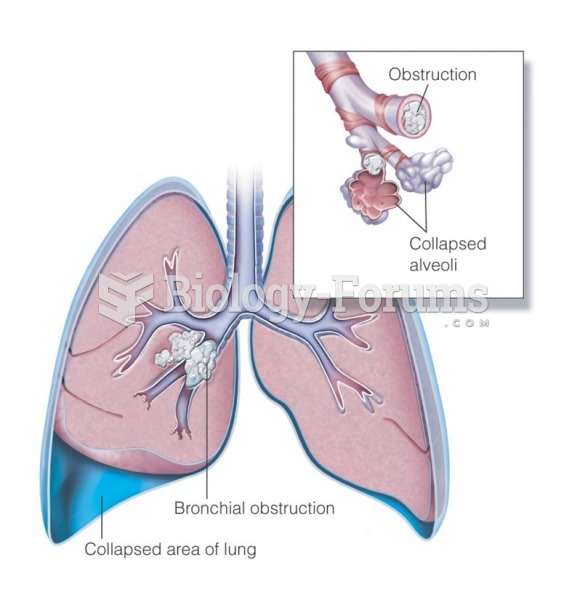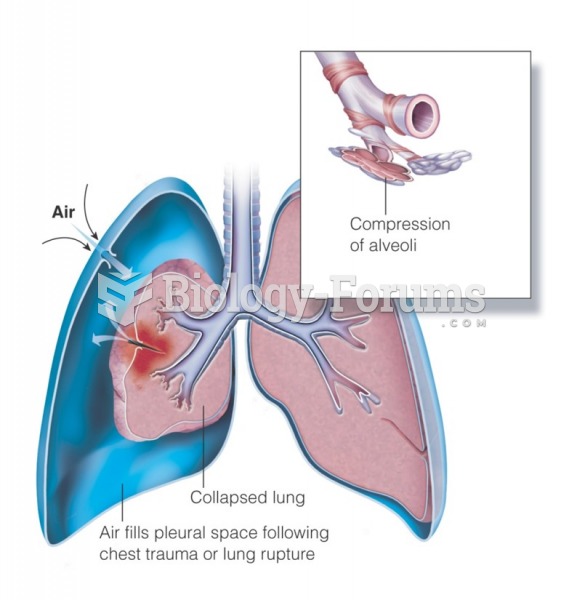|
|
|
The immune system needs 9.5 hours of sleep in total darkness to recharge completely.
Eat fiber! A diet high in fiber can help lower cholesterol levels by as much as 10%.
After 5 years of being diagnosed with rheumatoid arthritis, one every three patients will no longer be able to work.
Always store hazardous household chemicals in their original containers out of reach of children. These include bleach, paint, strippers and products containing turpentine, garden chemicals, oven cleaners, fondue fuels, nail polish, and nail polish remover.
Once thought to have neurofibromatosis, Joseph Merrick (also known as "the elephant man") is now, in retrospect, thought by clinical experts to have had Proteus syndrome. This endocrine disease causes continued and abnormal growth of the bones, muscles, skin, and so on and can become completely debilitating with severe deformities occurring anywhere on the body.







